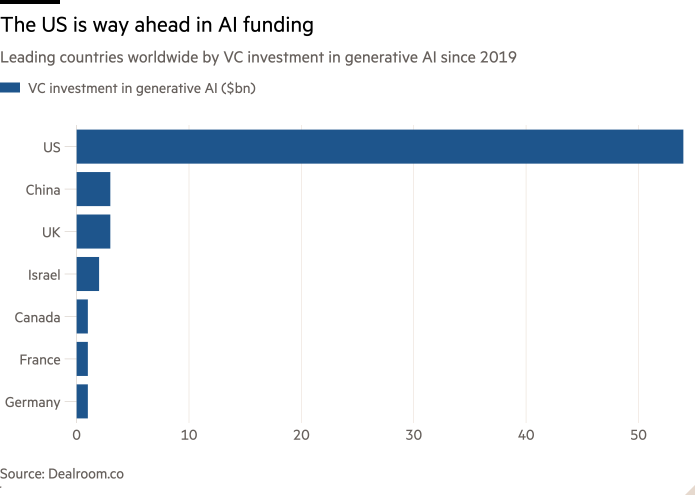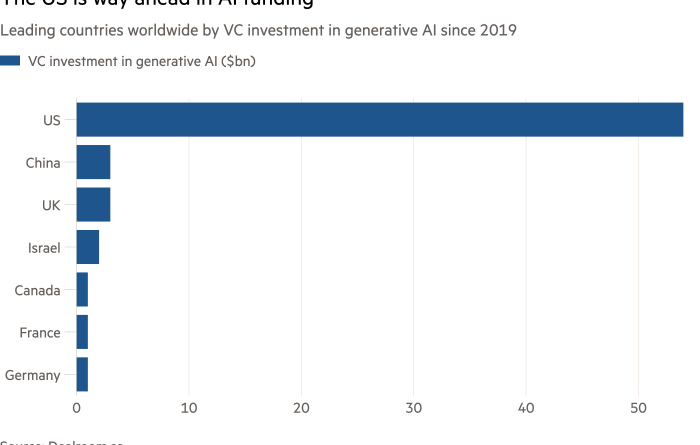Revolut’s backer Balderton Capital raises $1.3bn for European tech startup
Unlock the Editor’s Digest for free
Roula Khalaf, Editor of the FT, selects her favorite stories in this weekly newspaper.
Revolut’s sponsor Balderton Capital has raised $1.3bn in Europe’s largest startup-focused venture capital fund in the region, with the money going back to independent technology companies.
London-based Balderton, which has backed artificial intelligence startup Wayve and developer Royal Match Dream Games, has closed a $615mn seed round and a $685mn seed fund for “big” investments in startups, it said. “growing interest. in European technology”, according to managing partner Bernard Liautaud.
Liautaud pointed to data from Invest Europe and Cambridge Associates that showed European venture capital funds outperformed their North American peers over 10- and 15-year periods. “There is a larger list of global growth leaders from Europe and we have many in our portfolio,” said Liautaud.
The fundraising follows new funding for several top VC firms this year, including Accel’s European arm, Index Ventures and Creandum.
The European financial industry is more active than ever before the boom year of 2021, when Balderton and many of its peers finish raising money. VC investment in the region rose 12 percent in the second quarter of the year, according to Dealroom, which tracks private technology investments.
Balderton poured money into Revolut’s initial funding, becoming its largest investor. The fintech group this month announced a stake sale worth $45bn, making it Europe’s most valuable start-up.
“You can imagine how much money that raises,” Liautaud said. “Having a really good track record is where you do the same thing and sometimes you have a big profit.”
Unlike other large European-based venture capital firms, such as Index Ventures and Atomico, which also invest in US companies, Balderton only supports European startups.
However, that means the 24-year-old firm has been largely replaced by the latest wave of “foundational” AI startups based in Silicon Valley, such as OpenAI and Anthropic, which are investing heavily in creating models the largest of these languages. supporting chatbots like ChatGPT.
After major funding rounds for European AI start-ups Mistral, Wayve and Poolside AI, AI now accounts for 18 percent of all European VC funding, more than doubling in the past decade ago, according to Dealroom.
But its analysts found that five of the world’s top AI investors are based in the US, including Andreessen Horowitz, Sequoia Capital and Lightspeed Venture Partners, all of which have opened offices in London in the past few years.
As of 2019, US funding for companies developing AI products had reached $54bn, compared to $3bn for the next largest countries, China and the UK, Dealroom said. That data suggests European investors are losing steam to their US peers in the current big tech boom.

“We are not sure yet [the underlying AI infrastructure] “It’s really a good place to get good returns because of the capital it takes to be a big company,” Liautaud said. it is home to tech giants like Microsoft, Google and Amazon.
That still leaves a “huge” opportunity for AI applications built on top of those infrastructures, he added.
“The risk is that the requests are not moving as fast as the business model says,” said Liautaud. Although many companies are experimenting with AI, few of them lead to large long-term contracts for AI software companies.
“But the opportunity is that it’s moving very quickly and it’s really changing every sector,” Liautaud said. “And that’s what we’re betting on.”
Although the capital available for start-ups in Europe has increased many times over the last 15 years, the speed at which VCs have been able to realize those investments through initial public offerings has slowed significantly in the three years since Balderton finished collecting the money.
“The bar has been raised a lot because there have been disappointments in the past,” Liautaud said. “I think now, to go public, you have to be three times bigger than before.”
Companies that would have been able to IPO with $100mn in annual revenue were told to wait a few years until they reached $300mn to $400mn in sales, he added. However, in the meantime, mergers and acquisitions were continuing, with a series of small purchases of less than $1bn.
“The IPO market will determine the fate of one of these big buttons,” said Suranga Chandratillake, a Balderton partner who sits on Wayve’s board. “But the most important part of the VC fund cycle is the small roads.”
#Revoluts #backer #Balderton #Capital #raises #1.3bn #European #tech #startup
